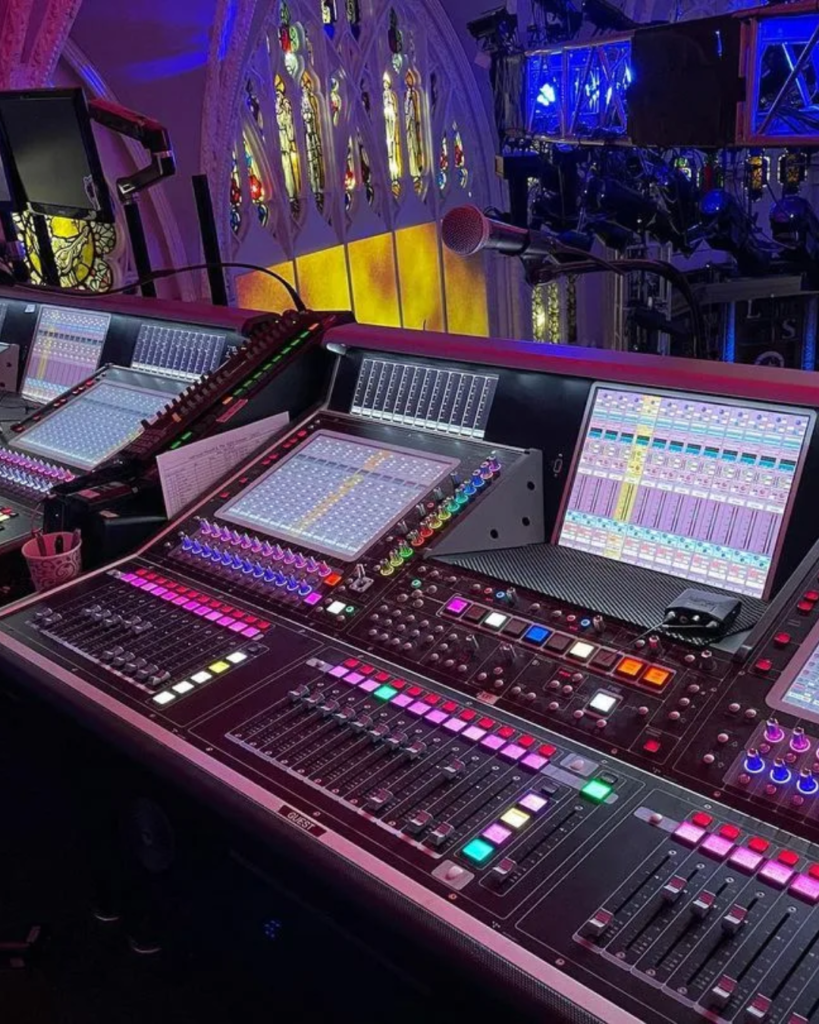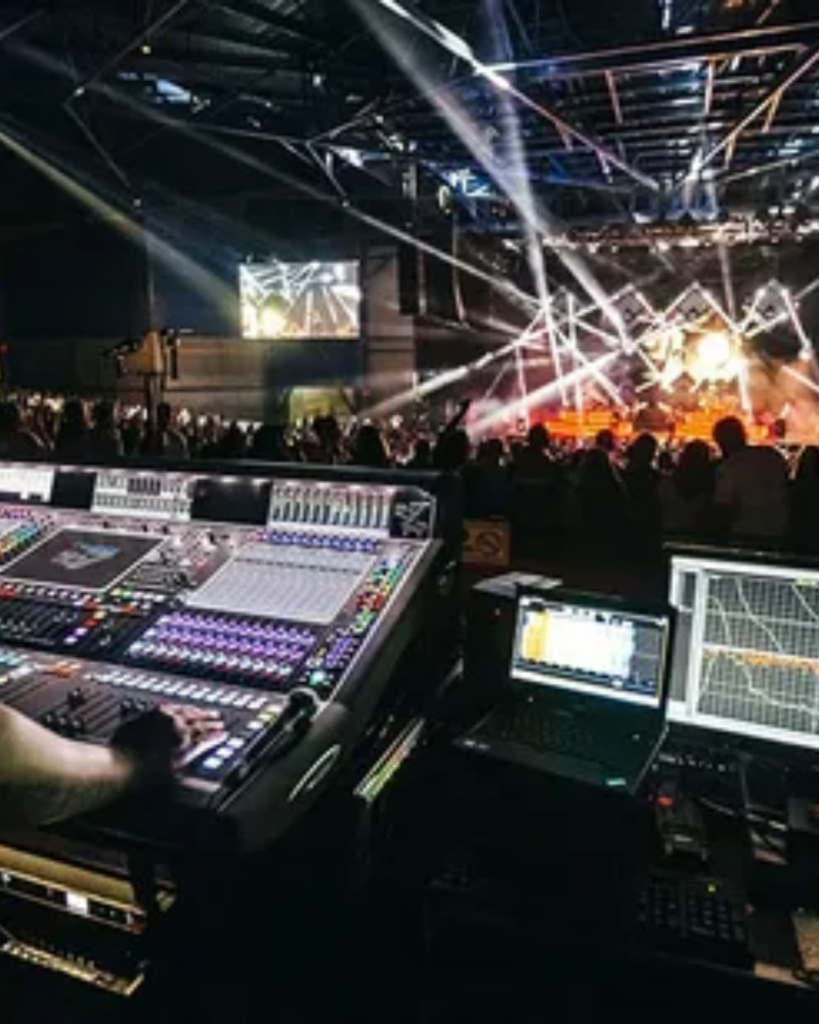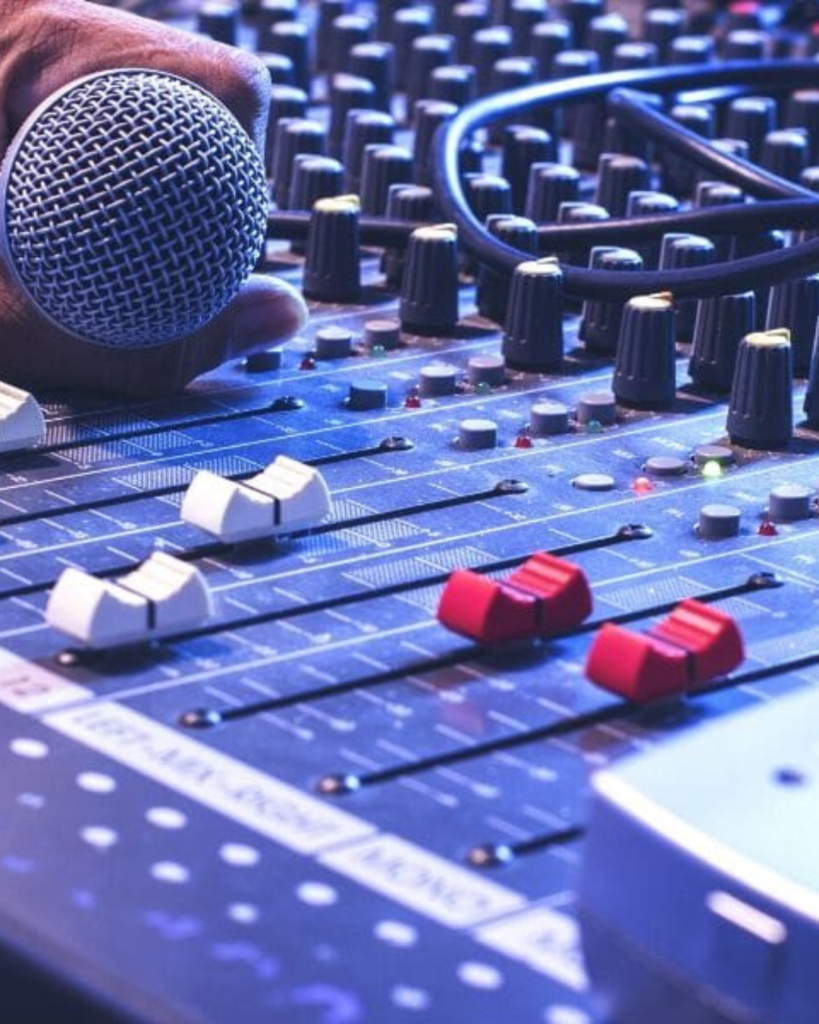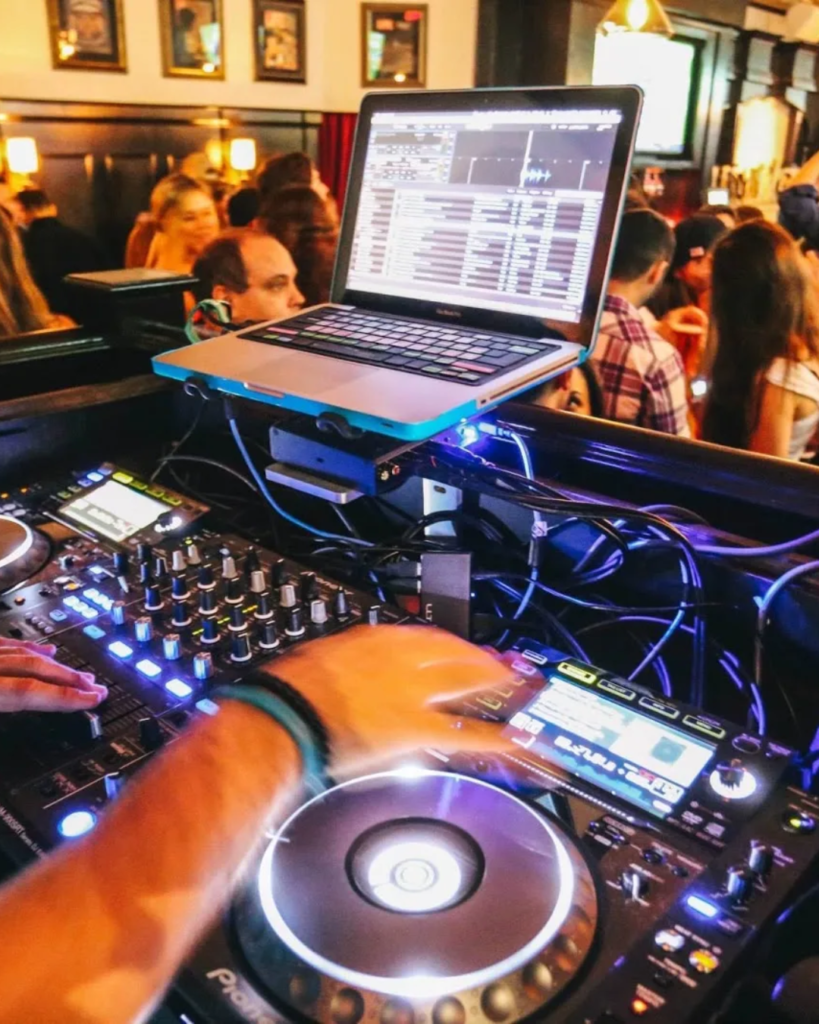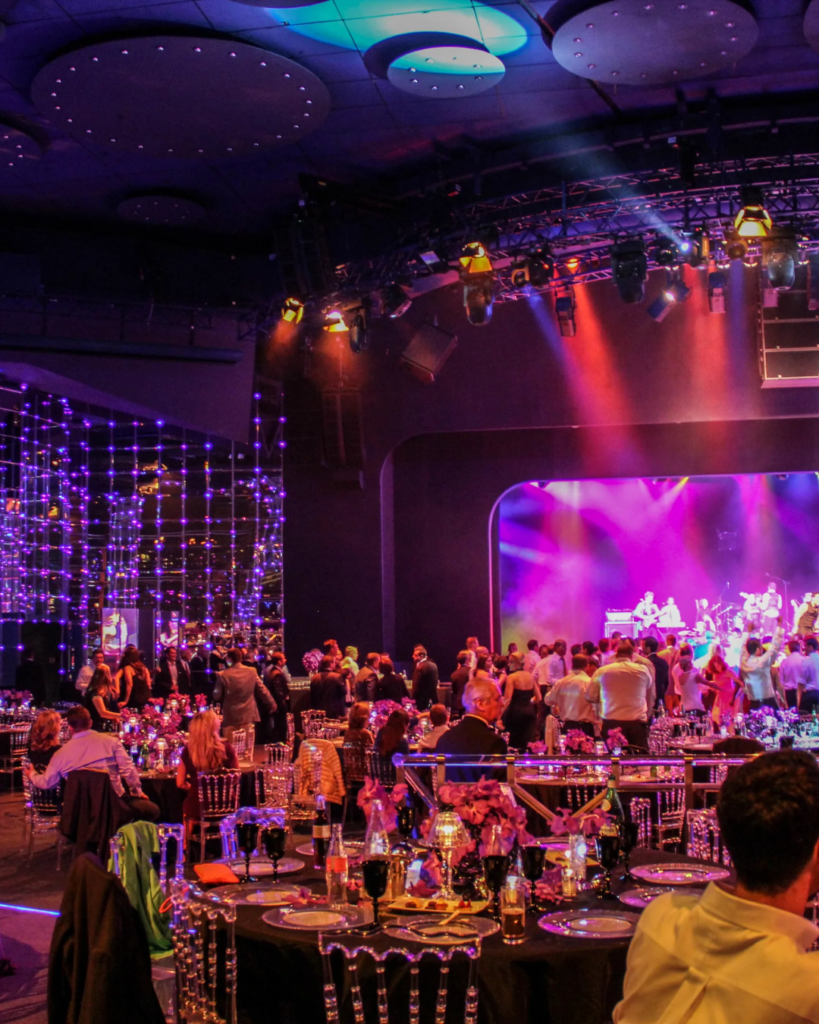
Audio visual (AV) equipment rental has become an essential service for various events, ranging from corporate conferences and trade shows to weddings and concerts. It includes a wide range of technology that enhances communication and interaction through sound, video, and lighting. Whether you’re hosting a small meeting or a large-scale event, renting the right AV equipment ensures your presentations and entertainment run smoothly and professionally. Below is a detailed guide to the types of AV equipment available for rental, their applications, and tips for selecting the right setup for your needs..
We are Providing Different Types of Audio Visual Equipment for Rental
Projectors and Screens:
- Projectors are a fundamental part of many events, ideal for displaying presentations, videos, or slideshows. Depending on the size of the venue, you may need a standard or high-lumen projector to ensure clear visibility.
- Projection screens come in various sizes and formats, from tripod screens for smaller spaces to larger, motorized screens for large events. These are typically used in conferences, seminars, or movie screenings.
LED Displays and Video Walls:
- LED displays and video walls are dynamic and visually impactful, ideal for concerts, corporate events, and exhibitions. They offer high-resolution visuals and can be customized to fit various sizes and configurations.
- Video walls made up of multiple LED panels create a large, seamless display that can show live video feeds, presentations, or interactive content.
Sound Systems:
- A professional sound system is crucial for any event. This typically includes speakers, microphones, mixers, and amplifiers.
- Speakers: Choose from portable speakers for small venues or line-array speakers for large spaces.
- Microphones: Options include handheld, lapel, or headset microphones, each suited for different purposes, from speeches to performances.
- Mixers and amplifiers ensure sound is balanced and powerful enough to cover the event space without distortion.
- A professional sound system is crucial for any event. This typically includes speakers, microphones, mixers, and amplifiers.
Lighting Systems:
- Lighting is essential for setting the mood and enhancing the ambiance of an event. This includes stage lighting, ambient lighting, and spotlights.
- Stage lighting: For concerts, plays, or presentations, stage lighting such as PAR lights, spotlights, and wash lights are used to illuminate key areas.
- Uplighting and ambient lighting are often used at weddings or corporate functions to enhance the atmosphere with colored lights that match the event theme.
- Lighting is essential for setting the mood and enhancing the ambiance of an event. This includes stage lighting, ambient lighting, and spotlights.
Video Cameras and Live Streaming Equipment:
- For events where recording or live streaming is required, video cameras and streaming equipment are available for rent. High-definition cameras are used for capturing live events, while streaming setups allow you to broadcast to an online audience in real-time.
Stage and Truss Systems:
- Stage rentals are common for concerts, performances, and speaker presentations. Stages come in various sizes and can be paired with a truss system to mount lighting, banners, or video displays.
Digital Audio Processors:
- Digital processors ensure sound quality remains clear and distortion-free by optimizing audio signals. These devices are critical in large events where various audio sources are used, such as music, microphones, and video.
Control Consoles:
- Control consoles for both sound and lighting provide professionals with the ability to manage all aspects of an event’s audiovisual output from one place. Whether controlling sound levels or adjusting lighting effects, these consoles are central to the smooth operation of complex AV setups.
Interactive Displays and Touchscreens:
- These are often used for trade shows, conferences, or corporate events where engagement is a priority. Touchscreens and interactive displays allow participants to interact with presentations, product demos, or digital kiosks.
Applications of Audio Visual Equipment
Corporate Events:
- AV equipment is integral to business events such as conferences, seminars, product launches, and annual meetings. Projectors, sound systems, and video walls help convey important messages, while lighting and stage setups create a professional atmosphere.
Weddings:
- Many weddings now incorporate AV equipment for a more immersive experience. Sound systems are used for speeches and music, projectors display photos or videos, and lighting enhances the venue’s ambiance. Video cameras may also be used to record the ceremony or reception.
Concerts and Festivals:
- Audio visual equipment is a must for concerts and music festivals. High-quality sound systems, stage lighting, LED displays, and video walls are all essential components of a successful performance.
Trade Shows and Exhibitions:
- Companies often use interactive displays, video walls, and sound systems at trade shows to attract visitors and showcase their products or services. AV equipment helps create dynamic and engaging booths that stand out in crowded exhibition halls.
Private Parties and Social Gatherings:
- Whether it’s a birthday party, anniversary celebration, or other social gathering, AV rentals can elevate the experience. Music systems, lighting, and video displays allow for customized entertainment options tailored to the event.
Churches and Religious Events:
- Religious institutions often require AV systems for sermons, weddings, or special religious events. This typically includes sound systems for speeches, music, and projectors for displaying hymns or religious texts.
Considerations When Renting AV Equipment
Venue Size and Layout:
- The size of the venue will determine the type and power of AV equipment you’ll need. Larger spaces may require higher-lumen projectors, powerful sound systems, and larger screens or video walls to ensure everyone in attendance has a clear view and can hear the audio clearly.
Event Type:
- The nature of the event plays a significant role in the equipment choice. For instance, a corporate seminar may require projectors, microphones, and screens, whereas a concert will need a powerful sound system, stage lighting, and video displays.
Power Requirements:
- Ensure that the venue has adequate electrical outlets and power supply to support the AV equipment. Larger setups, especially with stage lighting and video walls, can consume significant power, so generators may be required in some cases.
Setup and Technical Support:
- Many AV rental companies offer full-service packages, which include the setup, operation, and breakdown of equipment. Having trained technicians on-site is important to troubleshoot any technical issues that may arise during the event.
Budget:
- Rental costs can vary widely depending on the type of equipment, the duration of the event, and the level of support required. It’s essential to determine a budget early on and communicate this with the rental company to ensure you get the best value for your investment.
Connectivity and Compatibility:
- Make sure that the AV equipment is compatible with the devices you’ll be using, such as laptops, cameras, or soundboards. Check that all necessary cables, adapters, and connectors are provided by the rental company.
Testing and Rehearsal:
- It’s crucial to test all AV equipment before the event to ensure everything is functioning correctly. A rehearsal or soundcheck will allow you to make adjustments to sound levels, lighting, and visuals before the actual event begins.
Tips for Choosing an AV Rental Company
Experience and Expertise: Look for a rental company with a proven track record in handling events similar to yours. Experienced professionals can offer valuable advice on the best equipment for your needs.
Customization Options: Choose a company that offers flexible and customizable rental packages to suit your event’s specific requirements.
Technical Support: Ensure that the company provides on-site technical support to handle any equipment malfunctions or troubleshooting during the event.
Quality of Equipment: Inspect the condition of the AV equipment. High-quality, well-maintained gear is crucial for achieving the best performance and reliability.
Availability of New Technology: A reputable AV rental company should offer the latest technology in audio, visual, and lighting equipment to ensure your event looks and sounds professional.




